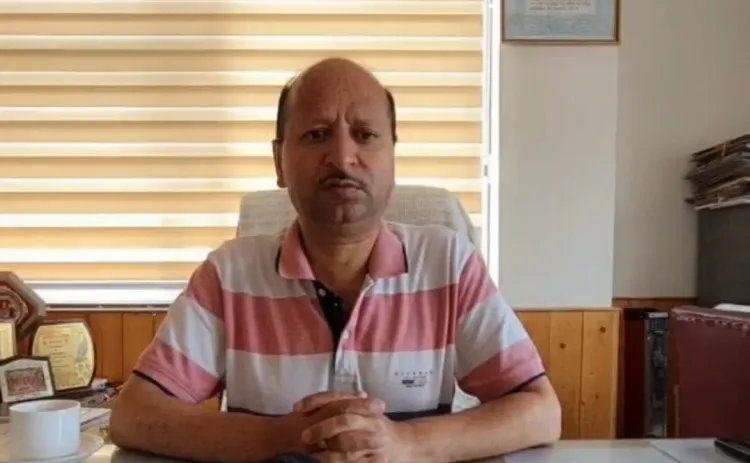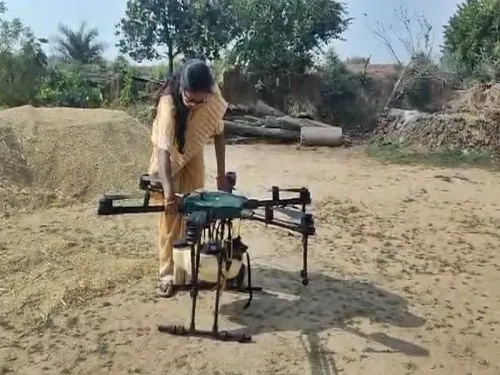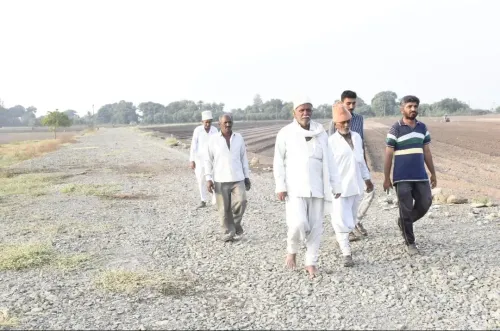Is Relentless Rain in Solan Causing Crop Diseases? Agriculture Dept Issues Advisory

Synopsis
Key Takeaways
- Unrelenting rainfall in Solan raises crop disease concerns.
- Farmers urged to utilize PMFBY for protection.
- Emphasis on preventive measures like drainage and sunlight.
- Crop rotation and fungicide use are critical.
- Agriculture Department committed to supporting farmers.
Solan, Aug 7 (NationPress) The unending downpour in the Solan district of Himachal Pradesh has sparked significant alarm regarding the health of crops, as the excessive moisture is leading to the swift proliferation of crop diseases.
As per the Agriculture Deputy Director Devaraj Kashyap, ailments such as early blight, root rot, and fruit rot are being extensively reported across the affected regions.
In an interview with IANS, Kashyap mentioned that the Agriculture Department has initiated an evaluation of the damage inflicted on crops due to the heavy rainfall, with reports being dispatched to the Revenue Department for necessary actions.
He encouraged farmers to utilize the Pradhan Mantri Fasal Bima Yojana (PMFBY) to safeguard themselves against natural disasters.
“For crucial crops like tomatoes, farmers can pay merely Rs 800 per bigha as a premium and receive compensation in the event of losses caused by weather or disease. This premium is quite reasonable,” he stated.
To prevent further deterioration, the Agriculture Deputy Director stressed on various preventive strategies. He recommended that farmers ensure adequate drainage in their fields to prevent water accumulation, promote sufficient sunlight exposure for the crops, and treat seeds with fungicides prior to sowing.
“In regions with a high incidence of blights, practicing crop rotation becomes critically important. Additionally, timely application of fungicides is essential to manage disease spread,” he noted.
Kashyap reassured the agricultural community that the Agriculture Department is wholly dedicated to offering every possible assistance.
“All necessary resources, technical support, and guidance are being provided to farmers through the department,” he affirmed.
Farmers in Solan are also being encouraged to maintain regular communication with their local agriculture officers and report any unusual crop symptoms.
With appropriate precautions and timely measures, Kashyap expressed optimism that the current weather-induced challenges can be effectively managed.
“We are diligently monitoring the situation and are here to assist our farmers at every stage,” he concluded.










